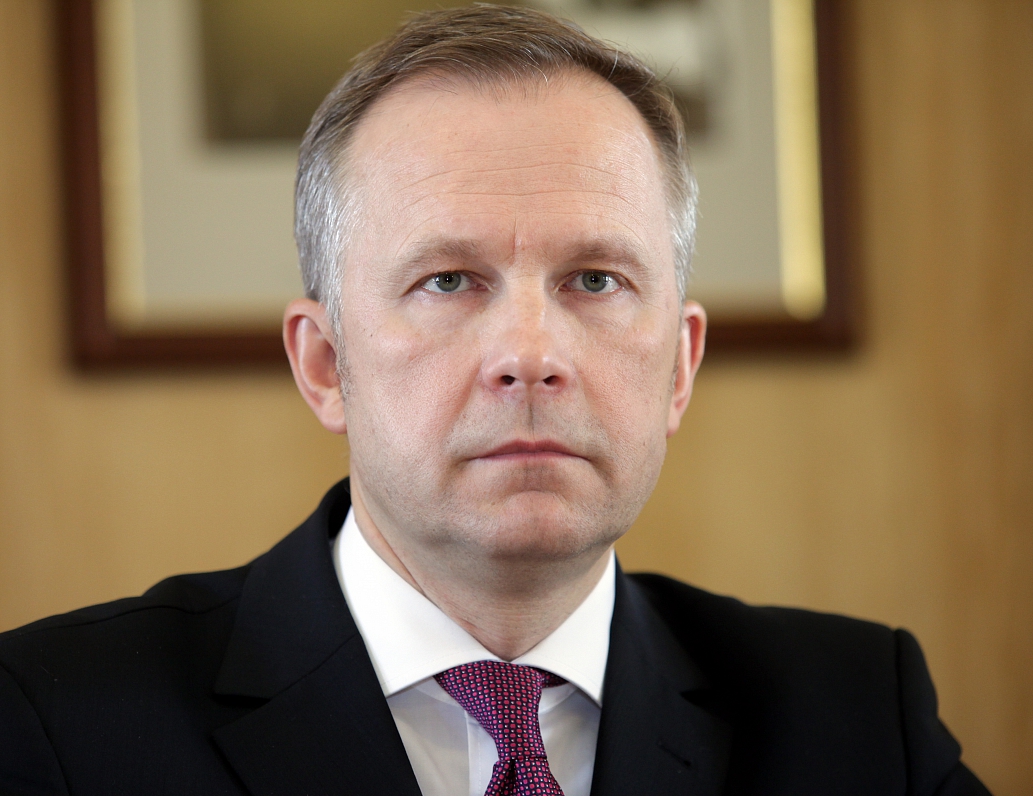According to an opinion provided by the ECJ's Advocate General Juliane Kokott at the request of Rimšēvičs and the European Central Bank (ECB), Latvia overstepped the mark in preventing the governor performing his duties even as allegations of large-scale bribery were swirling around his head.
"In today’s Opinion, Advocate General Juliane Kokott proposes that the Court should rule that, by prohibiting Mr Rimšēvičs from performing his duties as Governor of the Bank of Latvia without providing the Court with evidence of the acts which it alleges he committed, the Republic of Latvia has failed to fulfil its obligations under the Statute of the ESCB and of the ECB," a statement from the ECJ said.
That statute provides that ‘a Governor may be relieved from office only if he no longer fulfils the conditions required for the performance of his duties or if he has been guilty of serious misconduct’.
"The Advocate General observes that the measures adopted in the present case in respect of Mr Rimšēvičs, although temporary, nonetheless constitute being ‘relieved from office’ ... the tangible effect of the measures imposed on Mr Rimšēvičs is that he is prevented from performing his duties as Governor of the Bank of Latvia and as member of the Governing Council of the European Central Bank," the opinion continues.
AG Kokott opinion: the #ECJ should rule that the Republic of #Latvia has failed to justify its suspension of the Governor of the Bank of Latvia from office and has therefore failed to fulfil its obligations https://t.co/BXuldkaxWx
— EU Court of Justice (@EUCourtPress) December 19, 2018
It then goes on to explain that though the allegations against the long-serving governor are extremely serious, he has not been convicted of any offense and the evidence released by investigators so far does not provide a sound basis for suspending him from his duties.
"In the present case, no ruling on the substance of the case has been given by a Latvian court concerning the acts allegedly committed by Mr Rimšēvičs and nor has the Republic of Latvia produced any other evidence before the Court. That Member State merely submitted, inter alia, documents drawn up by administrative authorities concerning Mr Rimšēvičs’ role and his alleged conduct. Although the documents contain a description of the acts allegedly committed by Mr Rimšēvičs, they do not contain any factual evidence capable of establishing that those acts did in fact take place. There is therefore no evidence before the Court that would allow it to ascertain whether the allegations made against Mr Rimšēvičs are well founded," the Advocate General explained.
"The Advocate General therefore concludes that, by relieving Mr Rimšēvičs from the office of Governor of the Bank of Latvia without demonstrating that the conditions set out in Article 14.2 of the Statute of the ESCB and of the ECB for such removal from office were met, the Republic of Latvia has failed to fulfil its obligations under that provision," it concluded.
The Advocate General’s Opinion is not binding on the Court of Justice and its Judges are now beginning their deliberations in this case. Judgment will be given at an unspecified later date. Nevertheless it would be extremely surprising if the Judges ruled that the legal opinion of the court's Advocate General was not sound.




























